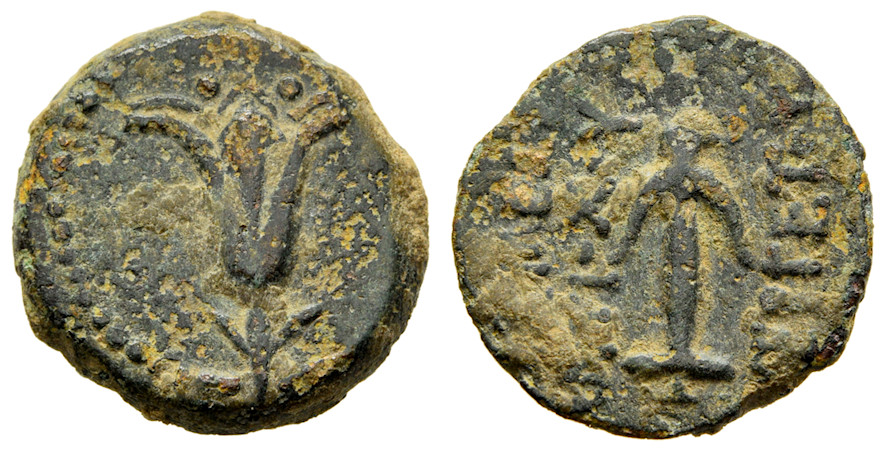
Archaeology and Early Judaism
Associate Professor @arieluniversity
Author of:
The Origins of Judaism (Yale 2022)
Between Yahwism and Judaism (Cambridge 2025)
2 subscribers
How to get URL link on X (Twitter) App


 This weeks Torah reading includes the Ten Commandments in Exodus 20.
This weeks Torah reading includes the Ten Commandments in Exodus 20.
 “Jews” is the English for descendants of people who lived in “Yehudah” (Judea), and who therefore identified as “Yehudim” (Judeans).
“Jews” is the English for descendants of people who lived in “Yehudah” (Judea), and who therefore identified as “Yehudim” (Judeans).
 Before the revolt, the Torah was not well-known or widely practiced.
Before the revolt, the Torah was not well-known or widely practiced.
 In the West, our notions of religious conversion tend to be heavily influenced by Christianity, where adopting the belief in Jesus as one’s Lord and Saviour is absolutely central to the conversion process.
In the West, our notions of religious conversion tend to be heavily influenced by Christianity, where adopting the belief in Jesus as one’s Lord and Saviour is absolutely central to the conversion process.
https://twitter.com/AdlerYonatan/status/1863678486428176476Precious few archaeological remains dating to the Persian or Early Hellenistic period have been uncovered in Jerusalem.


https://twitter.com/AdlerYonatan/status/1863678486428176476Throughout the Persian and Early Hellenistic periods (late 6th to early 2nd century BCE), there is little reason to think that the Torah was widely known and regarded as authoritative.

 ● “There is no cat here!”
● “There is no cat here!”
https://twitter.com/AdlerYonatan/status/1863678486428176476As long as Judea remained a backwater province, Judeans had little need learn Greek, adopt Greek names, or absorb Greek material culture.


 The opening shot of the battles of Lexington and Concord has been called the “shot heard round the world”.
The opening shot of the battles of Lexington and Concord has been called the “shot heard round the world”.

 The stele was unearthed in a temple for the hero-god Amphiaraus at Oropos, on mainland Greece.
The stele was unearthed in a temple for the hero-god Amphiaraus at Oropos, on mainland Greece.https://twitter.com/AdlerYonatan/status/1859308536632836245…in the original post was not against Judaism or the Hebrew Bible.

 Kol Nidrei is a technical declaration annulling vows which a person might make over the coming year.
Kol Nidrei is a technical declaration annulling vows which a person might make over the coming year.https://twitter.com/AdlerYonatan/status/1826292836519882826As I wrote in my previous post, two primary archaeological phenomena are associated with purity observance beginning in the late 2nd century BCE:

 The Pentateuch includes a large amount of laws relating to the laws of purity.
The Pentateuch includes a large amount of laws relating to the laws of purity. 
 In speaking of an author as a member of an “elite”, one would seem to imply that the writer wields a certain degree of influence upon the general society within which he or she lives and works.
In speaking of an author as a member of an “elite”, one would seem to imply that the writer wields a certain degree of influence upon the general society within which he or she lives and works.
 מאמר זה מציע פירושים חדשים לשלושה מונחים המופיעים בספרות התנאית בהקשר לסוגי העורות שעליהם כותבים תפילין, מזוזות וספרי תורה: "קלף", "דוכסוסטוס" ו"גויל".
מאמר זה מציע פירושים חדשים לשלושה מונחים המופיעים בספרות התנאית בהקשר לסוגי העורות שעליהם כותבים תפילין, מזוזות וספרי תורה: "קלף", "דוכסוסטוס" ו"גויל". 
 In translating a text, one has to pay very, very careful attention to words.
In translating a text, one has to pay very, very careful attention to words.
 The book’s subtitle is: “An Archaeological-Historical Reappraisal”.
The book’s subtitle is: “An Archaeological-Historical Reappraisal”.
 Excavations conducted in the first half of the 20th century at Samaria-Sebaste uncovered an Augusteum, surrounded by additional Roman-era structures. In 1992, Dan Barag published a compelling hypothesis that these buildings were a royal compound belonging to Herod himself.
Excavations conducted in the first half of the 20th century at Samaria-Sebaste uncovered an Augusteum, surrounded by additional Roman-era structures. In 1992, Dan Barag published a compelling hypothesis that these buildings were a royal compound belonging to Herod himself.